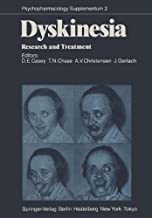Tardive Dyskinesia
A condition affecting the nervous system, often caused by long-term use of some psychiatric drugs.
Tardive dyskinesia is caused by long-term use of neuroleptic drugs, which are used to treat psychiatric conditions.
Tardive dyskinesia causes repetitive, involuntary movements, such as grimacing and eye blinking.
Stopping or tapering drugs that may be contributing to involuntary repetitive movements can help. In rare cases, botulinum toxin, deep brain stimulation, or medications can help.
Cluster Number:
Wiki Number: PW216
Diagnosis: Tardive Dyskinesia
US Patients: 30% of those taking antipsychotic medicines
World Patients:
Sex Ratio: M;F+
Age Onset: elderly
Brain Area:
Symptoms: involuntary, repetitive body movements: rapid-jerking or slow-writhing; grimacing, smacking lips, sticking out tongue, eye-blinking
Progression: walking is difficult or impossible due to excess leg movement
Causes: reactions to narcoleptic drugs; reactions to long-term-use of dopamine-receptor-blocking medications; antipsychotics
Medications: supersensitivity to dopamine becomes in the nigrostriatal pathway;discontinuing the narcoleptics helps; valbenazing, etc.
Therapies: No therapies listed; newer antipsychotic drugs cause less dyskinesia than the first generation of antipsychotic drugs did.
Youtube Video: Meet Jeff, Living with Tardive Dyskinesia
Amazon or Library Book:
Ultimate Medical Guide to Tardive Dyskinesia
Click the book to link or order from Amazon.

